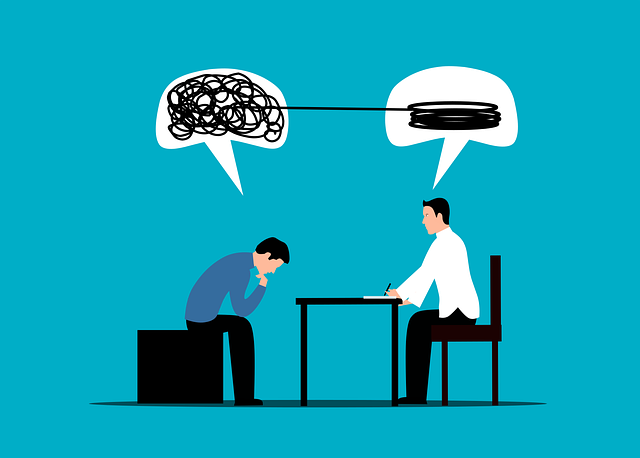Psychologists provide specialized child and adolescent therapy, addressing unique emotional challenges faced by young individuals. Using evidence-based techniques like CBT and mindfulness, therapists help manage symptoms, build healthy coping mechanisms, and enhance self-esteem. This approach aims to improve academic performance, peer relationships, and overall well-being, fostering resilience for long-term mental health success. Early interventions through therapy guide young people through emotional development milestones, promoting better stress management and healthier relationships into adulthood.
Looking for support for your child’s emotional wellbeing? A psychologist specializing in child and adolescent therapy offers a safe space for young minds to process and grow. This article explores the crucial role these professionals play in fostering healthy development, addressing common challenges like anxiety, depression, and trauma. Learn about evidence-based techniques, the transformative benefits of therapy, and how to choose the right psychologist for your family’s unique needs.
- Understanding Child and Adolescent Therapy
- The Role of a Psychologist in Emotional Wellbeing
- Common Emotional Challenges Faced by Children and Teens
- Techniques Used in Child and Adolescent Therapy
- Benefits and Outcomes of Therapy for Young Individuals
Understanding Child and Adolescent Therapy
Child and adolescent therapy, led by a qualified psychologist, is a specialized form of mental health support designed to help young individuals navigate their emotional and behavioral challenges. This therapeutic approach recognizes that children and adolescents experience unique pressures and stressors, from peer relationships to academic demands, which can impact their overall wellbeing.
The goal of this therapy isn’t just to treat specific symptoms but also to foster healthy coping mechanisms, enhance self-esteem, and promote positive relationships. Through a range of evidence-based techniques, therapists work with young people to understand and manage their emotions, improve communication skills, and develop strategies for dealing with life’s challenges. This supportive environment encourages open dialogue, helping children and adolescents build resilience and achieve long-term emotional wellbeing.
The Role of a Psychologist in Emotional Wellbeing
A psychologist plays a pivotal role in promoting and maintaining emotional wellbeing, especially among children and adolescents. Through specialized training and expertise in mental health, they offer a safe space for individuals to explore and understand their emotions. During therapy sessions, psychologists employ evidence-based techniques to help young people navigate and manage challenging feelings, fostering resilience and coping strategies. By addressing underlying issues, these professionals enable children and adolescents to develop healthier emotional responses and improve their overall well-being.
In the context of child and adolescent therapy, psychologists provide a range of services. They assess and diagnose emotional disorders, design personalized treatment plans, and guide parents and caregivers in supporting their young ones’ mental health journeys. The psychologist’s role extends to educating individuals about emotional intelligence, self-awareness, and stress management, empowering them to make informed decisions regarding their emotional wellbeing.
Common Emotional Challenges Faced by Children and Teens
Children and teenagers often encounter a range of emotional challenges as they navigate their growth and development. Common issues include anxiety, depression, and mood disorders, which can be triggered by various factors such as peer pressure, academic expectations, or family dynamics. These young individuals might struggle with self-esteem, body image, and identity formation, especially during pivotal developmental stages. Many seek support from a psychologist to help them manage these emotions and develop healthy coping mechanisms.
Psychologists skilled in child and adolescent therapy create safe spaces for exploration and understanding. They employ evidence-based techniques tailored to this age group, fostering open communication and building trust. Through individual or family therapy sessions, psychologists guide children and teens in expressing their feelings, identifying triggers, and learning effective strategies to enhance emotional wellbeing and resilience.
Techniques Used in Child and Adolescent Therapy
Psychologists employing child and adolescent therapy employ a variety of techniques tailored to this unique demographic. One widely used approach is cognitive-behavioural therapy (CBT), which helps young individuals identify and change negative thought patterns and behaviours contributing to emotional distress. This evidence-based method equips them with coping strategies, problem-solving skills, and enhanced self-awareness.
Another prevalent technique is mindfulness-based interventions, teaching children and adolescents how to focus on the present moment, accept their feelings without judgment, and develop a deeper understanding of their emotions. This promotes emotional regulation and can significantly improve overall well-being. Play therapy, art therapy, and exposure therapy are also utilized, leveraging creative expression, play scenarios, and gradual exposure to fears or anxieties for transformative therapeutic outcomes.
Benefits and Outcomes of Therapy for Young Individuals
Therapy for children and adolescents offers a safe space for young individuals to explore and express their emotions, which is particularly beneficial during critical periods of development. Through evidence-based practices, a psychologist can help them navigate complex feelings, improve self-esteem, and develop healthy coping mechanisms. These early interventions can lead to long-lasting positive outcomes, fostering better mental health and emotional resilience as they grow into adulthood.
Engaging in therapy provides young people with valuable skills to manage stress, anxiety, or trauma, allowing them to build a stronger sense of self and improve their relationships. Many psychologists use specialized techniques tailored to this age group, ensuring the sessions are engaging and effective. The outcomes include enhanced emotional intelligence, better academic performance, and improved overall wellbeing, setting a solid foundation for future success.
Child and adolescent therapy, led by qualified psychologists, plays a pivotal role in fostering emotional wellbeing during critical developmental stages. By understanding common challenges like anxiety, depression, and trauma, therapists employ diverse techniques ranging from cognitive-behavioral therapy to play therapy to help young individuals navigate their emotions effectively. The benefits are profound, leading to improved mental health, enhanced coping mechanisms, and better life outcomes for children and teens. Seeking professional support from a psychologist can be a transformative game-changer in promoting the emotional resilience of our youngest members of society.



